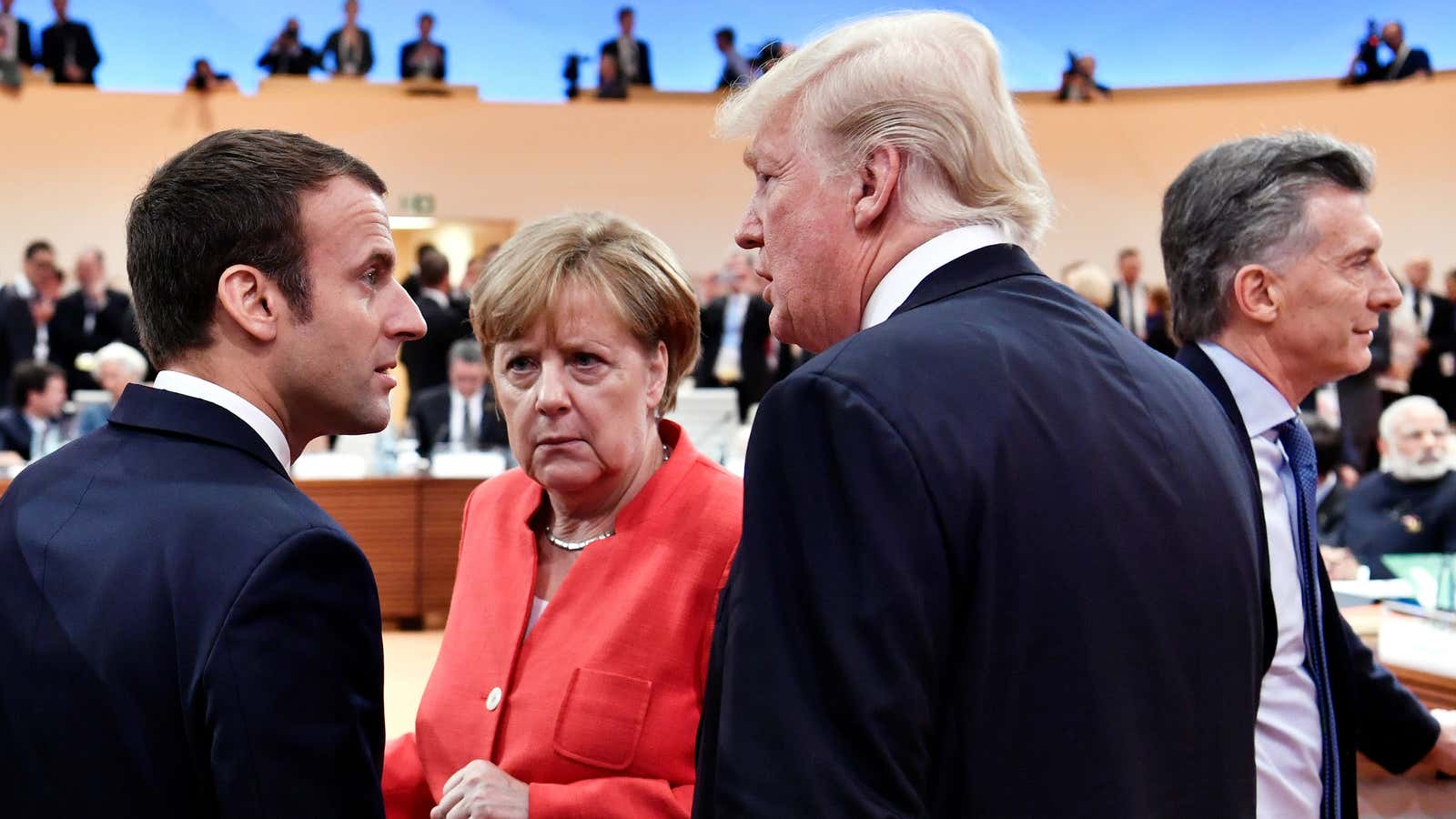It hasn’t been an easy year for cross-Atlantic diplomacy, if the G20 summit earlier this month is any indication. One thing leaders in the US and EU seem to agree on, however, is the need to boost oversight of corporate takeovers by Chinese companies.
Ant Financial’s planned acquisition of Dallas-based MoneyGram is an example. According to Reuters, the $1.2 billion deal has been resubmitted for review by US regulators, signaling greater scrutiny in Washington. Ant is part of Chinese entrepreneur Jack Ma’s online empire. MoneyGram would expand its user base of 670 million even wider. Some Chinese state-owned funds are invested in the Alibaba affiliate, and critics have argued that US customer data might not be protected. Ant says data generated by American consumers will be stored on domestic servers.
While the acquisition by Ant is not assured, it is at least feasible—whereas a similar takeover of a Chinese financial firm by an American company would probably be blocked by the Chinese government. Indeed, there are large swaths of Chinese industry that are off-limits to US companies. And now, American lawmakers on both sides of the political spectrum are reportedly working on ways (paywall) to strengthen the hand of the Committee on Foreign Investment in the United States (CFIUS), which has the power to scuttle foreign acquisitions.
There’s a good chance that a bill beefing up reciprocity passes, according to Steven Solomon, a law professor at the University of California Berkeley. While Ma is a savvy political operative, having met with US president Donald Trump early on, the Ant deal will be an important signal as to how the American administration views reciprocity and CFIUS.
A similar debate played out in Berlin this week. After a Chinese buyout spree last year, Germany’s government adopted legislation to allow it more veto power over foreign takeover bids—mainly to protect its technology sector from Chinese acquisitions. A big one was Midea Group’s purchase of robotics maker Kuka, which raised concerns about the country’s most advanced technology ending up in foreign hands. Economics minister Brigitte Zypries cited reciprocity and said the new German directive should help ensure a fairer playing field, according to the Financial Times (paywall). Europe’s biggest economies are all pushing Brussels for more power over Chinese takeovers.
In the US, which has seen a spate of Chinese acquisitions and takeover attempts, politicians are still putting up a fight over the buyout of a small stock exchange by a group of Chinese investors. The Chicago Stock Exchange only accounts for about 0.4% of US trading; its takeover already has been approved by CFIUS. But 11 members of Congress recently asked the US Securities and Exchange Commission to block the deal. They say the regulator may be unable to monitor the ownership group given China’s lack of transparency and its failure to abide by international agreements.
The politicians who signed the letter were mostly Republican, but a few Democrats were on board as well. It seems Chinese takeovers are one of the issues that can bring opposing sides together.
